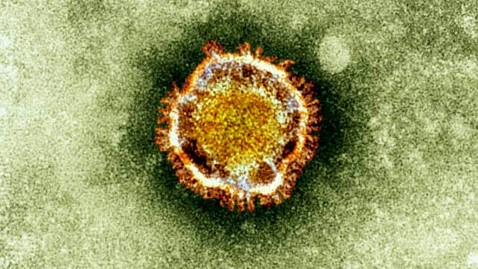SARS-Like Virus May Be Spreading Through Human Contact
A man in the United Kingdom is the 11th reported patient to be suffering from a new " SARS-like" virus and health officials are trying to determine if the virus is being passed from person to person.
The virus was first reported in September when a Qatari man and woman from Saudi Arabia were found to be suffering from a new type of coronoavirus.
Coronaviruses, which include the common cold and SARS, can, at their worst, cause acute pneumonia and kidney failure, the result of inflammation.
Since the virus was first reported, five of the 11 known patients have died, with the majority needing intensive care.
In the newest case, health officials monitoring the situation expect that the virus is being spread person-to-person. However, they emphasize that the risk to the general public remains low.
"If (the) novel coronavirus were more infectious, we would have expected to have seen a larger number of cases," said John Watson, head of the respiratory diseases department at the U.K.'s Health Protection Agency, said in a statement.
All except the newest patient traveled to Middle Eastern countries including Saudi Arabia, Qatar, Jordan and Pakistan. Doctors believe the newest patient contracted the illness from a family member and the Health Protection Agency has not suggested any travel bans in response to the outbreak.
The new viral outbreak comes ten years after the SARS virus raced across the globe, infecting an estimated 8,000 individuals and causing nearly 800 deaths.
However, Dr. William Schaffner, chair of preventative medicine at Vanderbilt University, says that the devastation of SARS lead to multiple medical advancements in the tracking and response to emerging diseases.
Hospitals are now able to send specimens of viruses to labs more quickly, and technicians can do molecular testing that was unavailable a decade ago. Additionally, after China was criticized for trying to hide the epidemic, country health officials are now more forthcoming about potential outbreaks.
"It's a new global standard," said Schaffner. "The ministries of health are communicating instantaneously to the WHO. Those are very, very good changes for the world."
In the case of the new SARS-like virus, the World Health Organization made the announcement about the disease only a few weeks after the second victim showed symptoms.
Schaffner said, however, that even with improvements the medical community must remain alert. He pointed out that prior to the SARS outbreak coronaviruses were rarely studied, as they generally resulted in just mild illnesses.
"We have to keep watching this," said Schaffner.
